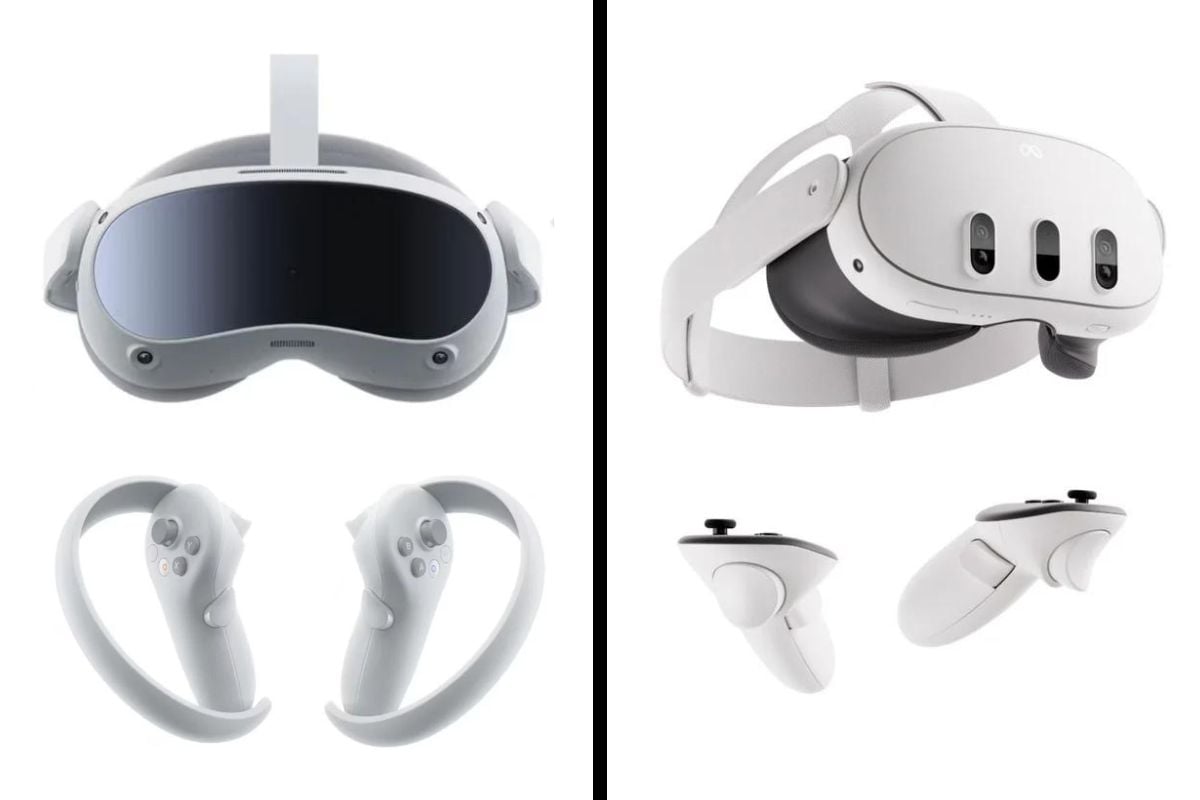
As the virtual reality market continues to evolve, choosing the right VR headset is becoming increasingly important, especially for users interested in the latest technology for gaming or immersive experiences like vr porn.
This detailed comparison between the Pico 4 and Meta Quest 3 will help you understand their respective strengths and weaknesses across a range of features including processing power, display technology, design, comfort, and functionality.
Each headset offers unique advantages that make them suitable for different user preferences and requirements in the rapidly growing field of virtual reality.
Detailed Comparison: Pico 4 vs. Meta Quest 3
Processor and performance
Pico 4: Equipped with the Qualcomm XR2, it efficiently handles VR environments and is suitable for detailed and complex VR content.
Meta Quest 3: Leverages the newer Snapdragon XR2 Gen 2, offering improved performance that can enhance the VR experience with faster processing and better handling of complex graphics.
Conclusion: Meta Quest 3 beats the Pico 4 due to its more advanced processor, offering better performance for complex VR applications.
Display and visual experience
Pico 4: Features a 4320 × 2160 resolution, providing 2160 × 2160 per eye. Its high PPI (1200) and pancake lenses significantly reduce glare and chromatic aberration for superior visual clarity.
Meta Quest 3: With a resolution of 2064 x 2208 pixels per eye, it offers a detailed display, but slightly less resolution compared to Pico 4. However, it still promises a crisp and immersive viewing experience.
Conclusion: Pico 4 wins in the display category with higher resolution and innovative lens technology that provides superior visual clarity.
Design and comfort
Pico 4: Noted for its lightweight design at 586 grams and balanced weight distribution, which increases comfort during extended use.
Meta Quest 3: Aesthetically similar to the Quest 2, but slimmer and more compact, with adjustable straps for a custom fit that improves comfort and user experience.
Conclusion: Pico 4 takes the lead in design and comfort due to its lighter weight and ergonomic build that enhances prolonged use comfort.
Connectivity and battery life
Pico 4: Supports Wi-Fi 6 and Bluetooth 5.1 with a 5300 mAh battery, allowing for long VR sessions and quick recharging.
Meta Quest 3: While offering similar connectivity options, its battery life allows for 2-3 hours of play, which is less than ideal compared to Pico 4’s larger battery capacity.
Conclusion: Pico 4 is superior in terms of connectivity and battery life, making it more suitable for extended sessions.
Tracking and interaction
Pico 4: Offers 6DoF tracking with precise and low-latency motion tracking suitable for an immersive VR experience.
Meta Quest 3: Introduces advanced full-body tracking capabilities and has enhanced pass-through capabilities for a mixed reality experience, providing a different type of interaction that may appeal to users interested in both MR and VR.
Conclusion: Meta Quest 3 surpasses Pico 4 in tracking and interaction, offering more comprehensive and advanced features that cater to a wider range of VR and MR activities.
Additional Features
Pico 4: Passthrough mode allows users to see their surroundings with reasonable clarity, but lacks depth perception.
Meta Quest 3: Meta Quest 3 stands out for its full-color passthrough, which provides a more natural and integrated experience when moving between virtual and real environments.
Conclusion: Meta Quest 3 excels in additional features by providing a more seamless integration of virtual and real worlds.
The bottom line
Both headsets have their strengths, with the Pico 4 excelling in visual clarity and battery life, while the Meta Quest 3 excels in performance and mixed reality features. The choice between the two would depend on the user’s preference for either a more immersive visual experience or advanced mixed reality capabilities.